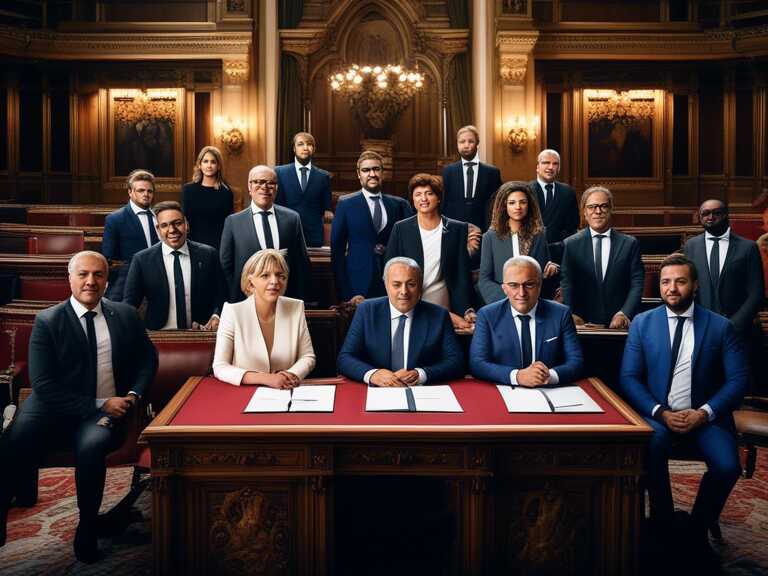
France's Left-Wing Coalition Halts Rise of Far-Right National Rally in Parliamentary Election
Mission accomplished for France's left-wing coalition, preventing the far-right from taking power, but now facing a hung parliament and instability.

Political Turmoil in France After Parliamentary Election
Following the recent parliamentary election in France, a left-wing coalition successfully prevented Marine Le Pen’s far-right National Rally party from coming to power in the final round of voting. President Emmanuel Macron is also claiming victory after calling for a snap election in response to significant gains made by Le Pen’s party in the European elections held in June. The leftist bloc, known as the New Popular Front, joined forces with Macron’s centrist Together grouping, resulting in more than 200 candidates dropping out before the second round to consolidate the vote against the National Rally.
Victory for Anti-Far-Right Alliance
The tactic proved effective, as the electorate rejected Le Pen and her party, despite initial indications of a strong showing in the first round. This outcome dealt a blow to the young leader of the National Rally, Jordan Bardella, who had been viewed as a potential prime minister if the party had gained significant parliamentary influence. However, the final results revealed the left winning 182 seats in the 577-seat chamber, Macron’s centrist alliance securing 168, and Le Pen’s National Rally and allies obtaining 143 seats, according to data from the interior ministry cited by Le Monde newspaper. It is worth noting that the final numbers will depend on the alliances formed by some MPs.
Unprecedented Period of Instability
Despite the success of the left-wing coalition, the election has left France facing an unparalleled period of instability. None of the political parties or groupings have come close to the 289 seats required for an absolute majority in parliament. The current prime minister, Gabriel Attal, has offered his resignation, but with no obvious replacement in sight, Macron has called on him to continue in his role for the time being.
Challenges of Minority Rule
With Emmanuel Macron still having three years remaining of his presidential term, the difficulty of minority rule with the left-wing alliance's number of seats is becoming apparent. According to Sylvain Maillard, MP for Macron’s Renaissance party, governing France without 240 to 250 lawmakers is not feasible. Additionally, with no new elections for a year under the terms of France’s constitution, the focus turns to finding a viable solution.
Search for a Viable Solution
Various suggestions have been put forward, including the formation of an anti-far-right coalition spanning from the moderate left to the center-right. However, the involvement of the radical left party of France Unbowed (LFI) in the New Popular Front coalition, which holds the most seats in parliament, poses a significant obstacle. The firebrand leader of LFI, Jean-Luc Melenchon, has expressed a reluctance to enter a government unless his party’s policies are prioritized, creating potential conflict with Macron’s centrist group.
Challenges of Coalition Building
Macron’s potential support for a caretaker government indicates the complexities involved in coalition building and governance, especially considering the competing agendas of the three blocs in the parliament. Ad hoc alliances around specific legislation may arise, but these measures are likely to face resistance from both the National Rally and the radical left.
Anticipated Difficult Process
The current situation in France has been described as challenging, with Green party leader Marine Tondelier acknowledging that the road ahead is expected to be neither simple nor comfortable. The need for time and effort to navigate the complexities of the political landscape has been emphasized.
Share news















